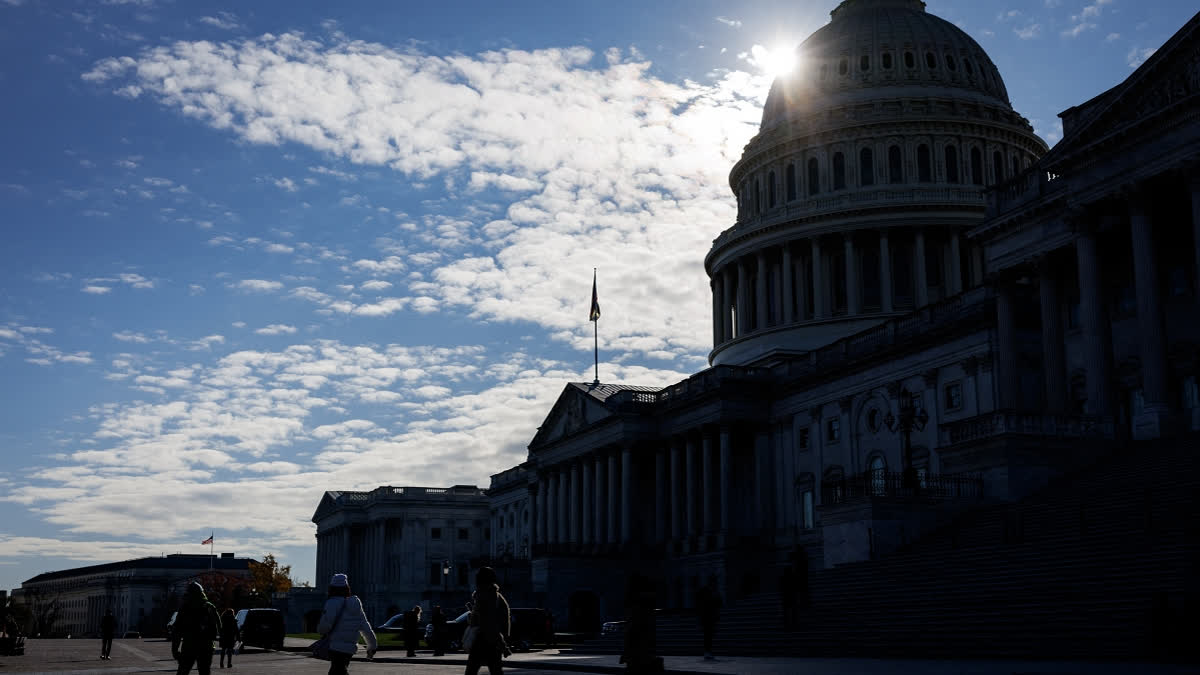Washington: Two Democratic Party Senators on Wednesday introduced legislation aimed at reuniting the immigrant families and raising the per-country family-based immigration caps, allowing more visas to go to a single country such as India and China.
Introduced by Senators Mazie K. Hirono, a member of the Senate Judiciary Committee, and Tammy Duckworth introduced the Reuniting Families Act, which would promote family unity in the country’s immigration system, reduce the family-based immigration backlogs, and update laws to reflect how families immigrate to the US.
The bill also includes Senator Hirono’s Filipino Veterans Family Reunification Act, legislation that would speed up the visa process for children of Filipino World War II veterans. “As the only immigrant currently serving in the US Senate, I am proud to introduce the Reuniting Families Act to update our country’s family immigration system and promote family unity,” said Hirono.
“By implementing changes to reduce the backlog of family-based immigration visas, exempting close relatives from visa caps, and preventing the separation of LGBTQ+ families, this bill will better prioritize family unity in our immigration system,” she said.
“We desperately need comprehensive immigration reform, but in the meantime, the Reuniting Families Act is a step in the right direction to help reunite or keep families together as they navigate our immigration system,” she said. Duckworth said, “Our country’s broken immigration system is riddled with unnecessary barriers that have created backlogs and kept families apart for years.”
“This legislation would implement commonsense reforms to help end family-based backlogs, which keep too many with approved green card applications stuck in bureaucratic limbo, and get more families where they belong—together,” he said.
The legislation would “recapture” unused visas from previous years, adding them to the number of visas United States Citizenship and Immigration Services (USCIS) may distribute; exempt close relatives from visa caps, extending the current exemption to spouses, unmarried children under 21, and certain parents of legal permanent residents.
It would raise the per-country family-based immigration caps, allowing more visas to go to a single country such as India, China, Mexico, and the Philippines; provide discretion to the government when applying certain “bars” on individuals, eliminating unfair requirements for individuals to go to their home countries if that individual unlawfully entered the United States.
The bill proposes to protect children from “aging out” after 21, extending protections for step-children and children of visa holders; expanding cancellation of deportation orders, making it easier for noncitizens to apply in cases of extreme hardship to a family member who is a US citizen or legal permanent resident.
It also seeks to eliminate discrimination against LGBTQ+ families, ensuring our immigration system treats those in same-sex relationships equally, including resettling partners together with their refugee spouses and allowing spouses to come to the US if their partner is granted asylum.
Asian Americans Advancing Justice said the last significant legislative change to the family-based immigration system happened in 1990. Yet over 30 years, the system that shapes our country and future has broken down, failing to live up to our values and hopes.
“The Reuniting Families Act is a vision for a better immigration system – one that recognizes that families belong together. We thank Senator Hirono for reintroducing this bill, which will help reduce needless and punitive barriers in our immigration system that separate parents from their children and permanent partners and spouses from their loved ones,” it said.
"Families should not have to be stuck in decades-long backlogs due to our failed and outdated immigration system," said Todd Schulte, president of FWD.us. "The Reuniting Families Act offers smart and moral policies, such as recapturing unused visas lost to bureaucratic delay and repealing the harsh and ineffective immigration bars that separate families, to help end the decades-long backlogs and finally begin the process of modernizing our family-based immigration system," he said.
“The Reuniting Families Act emphasizes the importance of a family reunification framework that keeps American families together,” said Kiran Kaur Gill, Executive Director of the Sikh American Legal Defense and Education Fund (SALDEF).
“As SALDEF and other communities work to combat disinformation and the negative framing of immigrants, it is crucial to push through false narratives and support our immigrant families. This bill will help millions of people caught in family immigration backlogs, making families whole again and affirming our right to be with our loved ones,” she said.



